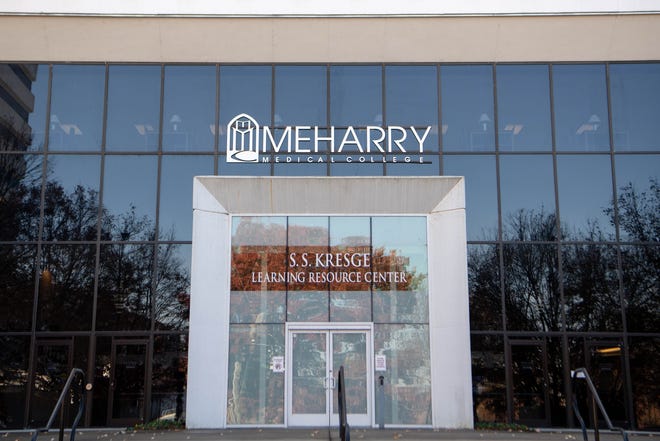get these nets
Veteran
TSU, Meharry launch accelerated program to graduate Black doctors, dentists
https://www.tennessean.com/staff/3235595001/meghan-mangrum/
Nov. 10, 2020
Meharry Medical College and Tennessee State University are joining forces to increase the number of Black physicians and dentists working in underserved communities.
The two historically Black colleges are launching the new Dr. Levi Watkins Jr. Medical, Dental Accelerated Pathway Program to prepare qualified TSU students for early acceptance to Meharry for medical or dental school.
The program's namesake, Watkins, the heart surgeon and civil rights activist who was the first doctor to successfully implant a heart defibrillator in a patient, was a 1966 alumnus of TSU and the first African-American to graduate from the Vanderbilt School of Medicine.
TSU President Glenda Glover said the accelerated program will "create a pipeline for African-American doctors and dentists" that is needed now more than ever thanks to the COVID-19 pandemic.

Meharry is already tackling the need for physicians in underserved communities like many areas of rural Tennessee through a fast-track program in partnership with Middle Tennessee State University in Murfreesboro.
https://www.tennessean.com/story/ne...ogram-put-doctors-rural-tennessee/3841407002/
MTSU students accepted into that program, launched in 2017, attend three years at the undergraduate level, earn a bachelor's degree and then go straight into three years of medical school at Meharry with state funding offsetting the cost of tuition.
In return, the students agree to work for at least two years in parts of Tennessee that need doctors the most.
Meharry's new partnership with TSU will provide the same accelerated route of study for TSU students.
Meharry graduates already overwhelmingly go on to serve patients in vulnerable or overlooked communities throughout the country, according to school officials, but Glover said the disproportionate toll that the coronavirus pandemic has taken on people of color highlights the glaring need for diverse healthcare providers.

“We remain committed to training more Black doctors who will go on to serve in minority communities, and this partnership will provide more opportunities for Black students,” said Dr. James E.K. Hildreth, President and CEO at Meharry Medical College in a statement. “I am especially delighted about this partnership, as Dr. Watkins was a key mentor throughout my medical training and blazed the trail for me and countless other minority students who had been told there wasn’t a place for us within the medical community. I hope this new program will honor Dr. Watkins’ memory by continuing to prepare the way for minority students interested in medicine.”
Hildreth, Glover and other leaders integral in the partnership emphasize the main goal — increasing the number of needed African American trained health care providers who will work in communities that have the greatest burden of health care needs.

Only about 7.7% of medical students identified as African American or Black in 2016, according to the most recent report from the Association of American Medical Colleges — lagging behind other groups, despite increasing efforts by colleges and institutions to create a diverse physician workforce.
Minority communities also often remain wary of the health care system, if access exists at all.
"Historically there has been disparity in the health care and treatment of African-Americans," Glover told The Tennessean in an interview Monday. "COVID has made it even clearer that we need more people of color working in our communities. We're dying at a higher rate. We have more diseases making us more susceptible to COVID.
"Years ago when African Americans were not treated properly in the healthcare system, and the discrimination that has taken place in healthcare has led to all these problems that could have been and should have been taken care of," she said.
Meharry — the nation's largest private, historically Black academic health sciences center — already enrolls more than 800 students.
The new program will be coordinated by the Dr. Levi Watkins Jr. Institute at TSU, which already hosts a pre-med society at the school, awards scholarships to students, and hosts academic lectures through an endowment from the Watkins family.
The new program will launch in the fall of 2021 with a cohort of TSU freshmen, who will receive advising, mentoring and student support services from the institute.
An enrollment goal hasn't been determined yet, Glover said Monday. The first cohort size will be determined by funding and the strength of the applicants but the school expects to enroll about 22 students in the accelerated program next year.
